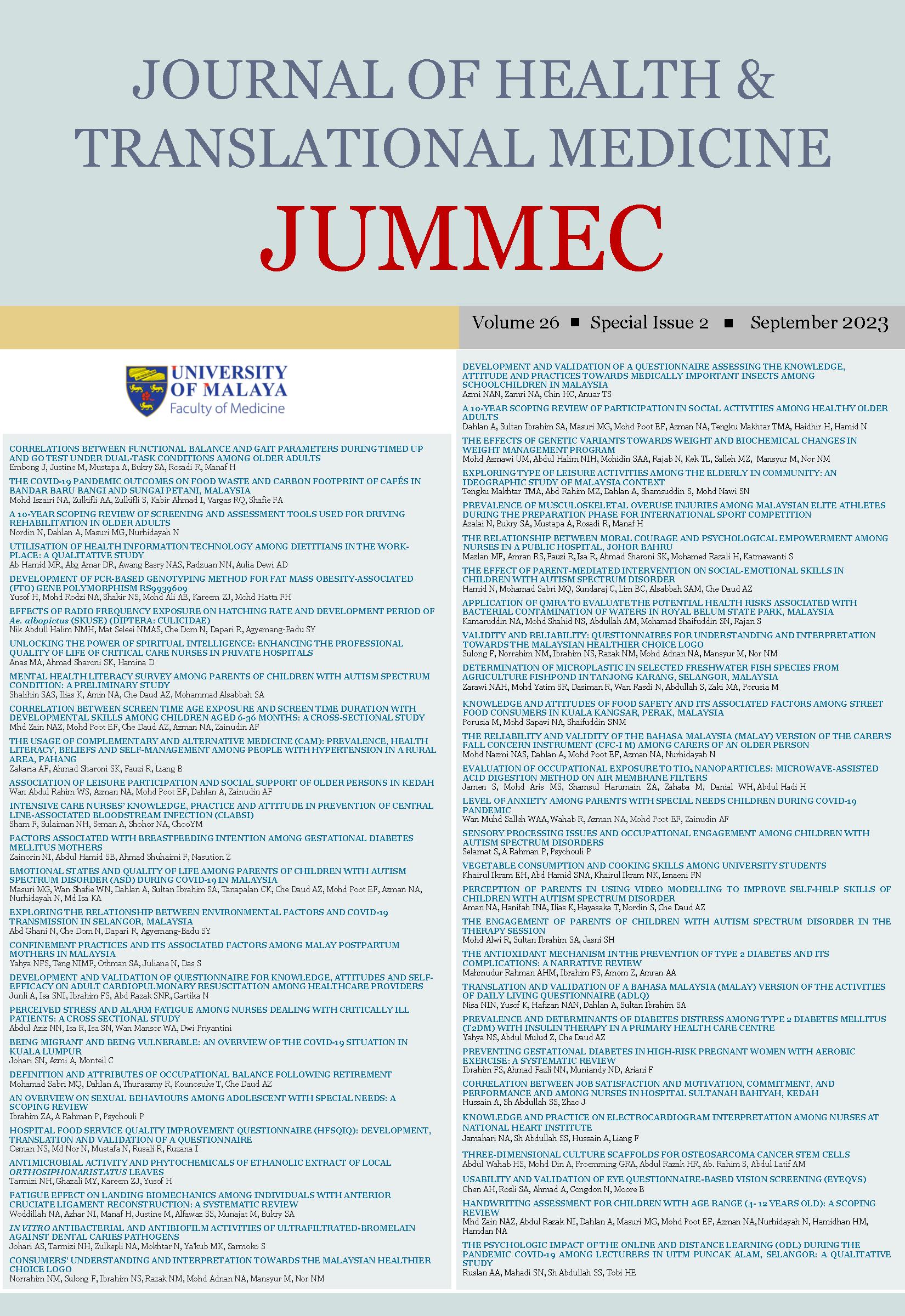THE EFFECTS OF GENETIC VARIANTS TOWARDS WEIGHT AND BIOCHEMICAL CHANGES IN WEIGHT MANAGEMENT PROGRAM
Received 2023-07-09; Accepted 2023-09-08; Published 2023-09-20
DOI:
https://doi.org/10.22452/jummec.sp2023no2.29Abstract
Genetic variation research indicates that 25% to 70% of body weight is determined by genetics. This study aimed to identify the influence of genetic variants on weight and biochemical data changes in participants who underwent a weight management program. A total of 30 obese participants were randomly assigned to either intervention or control groups. The study consisted of three phases: Phase I (pre-assessment), Phase II (intervention phase), and Phase III (post-assessment). The intervention and control groups were selected using block randomisation. The study involved 30 participants aged between 31 and 41 with a BMI of 32.8 ± 6.12 kg/m2. By examining the available data, it is possible to observe trends suggesting potential associations between certain genotypes and weight changes. Two specific variants, rs1726866 and rs1800497, significantly impacted glucose levels. Additionally, these two variants and another variant called rs1051168 were observed to influence cholesterol levels. These findings contribute to our understanding of the genetic factors that can potentially influence glucose and cholesterol metabolism and may have implications for personalised approaches to managing glucose and cholesterol-related conditions towards weight management programs.
Downloads
Downloads
Published
Issue
Section
License
All authors agree that the article, if editorially accepted for publication, shall be licensed under the Creative Commons Attribution License 4.0 to allow others to freely access, copy and use research provided the author is correctly attributed, unless otherwise stated. All articles are available online without charge or other barriers to access. However, anyone wishing to reproduce large quantities of an article (250+) should inform the publisher. Any opinion expressed in the articles are those of the authors and do not reflect that of the University of Malaya, 50603 Kuala Lumpur, Malaysia.


